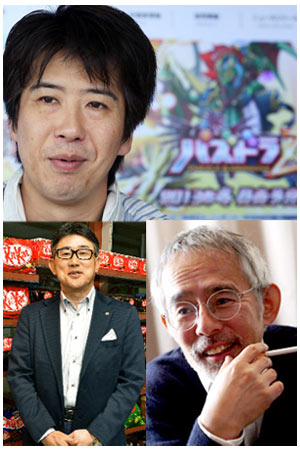I caught an interesting show on Japanese TV the other day called 子供に聞かせたい Kodomo ni Kikasetai! or “I Want to Tell This to the Children!” which featured some of Japan’s most visionary business leaders talking about how they became successful. First Toshio Suzuki, the “business arm” of Studio Ghibli, talked about the challenges of managing the financial side of an animation studio and of securing the financing that made Hayao Miyazaki’s amazing works possible. Another speaker was Kazuki Morishita, president of the company behind Pazudora (Puzzles and Dragons), the mobile game that took Japan and the world by storm and rocketed his company past Nintendo in market cap. Finally we heard from Kohzoh Takaoka, the head of Nestle Japan, which has been hugely successful in its 100 years of doing business here. He came to his superiors’ notice when he thought up the innovative idea of promoting Kit Kat (which sounds like きっと勝つ kitto katsu or “you will surely win”) to students preparing for university entrance exams, and he’s also the guy responsible for all those incredible flavors of Kit Kat you love to buy from J-List. After the guests spoke there was a question-and-answer segment in which smart young people, including a girl who started a company making YouTube videos for fashion-related companies at the age of 15, received advice on how to succeed in the future.I thought the program was important because one of the biggest problems in Japan is its lack of entrepreneurial spirit, especially among women. Although some of the most respected names in Japan’s history are those who created companies, such as Panasonic founder Konosuke Matsushita or Souichiro Honda, who turned a tiny company making machine parts for Toyota into a famous worldwide brand, in reality there’s often little respect for people with crazy dreams of starting a business. The Japanese are a very conservative people who tend to value security, and Japanese as a group aren’t generally forgiving of failure, even though to try something and fail at it is an important part of life, especially for an entrepreneur. Then there’s the fact that if you try to start a company and fail, your status is “reset” if you go to work at a new company, making you kohai (underling) to employees who are younger and have less experience than you. Having a TV show that put entrepreneurs in a positive light while showing young people interested in the idea of making their own businesses someday seemed to be to be a really good step forward.

A Japanese TV show to inspire young entrepreneurs.















